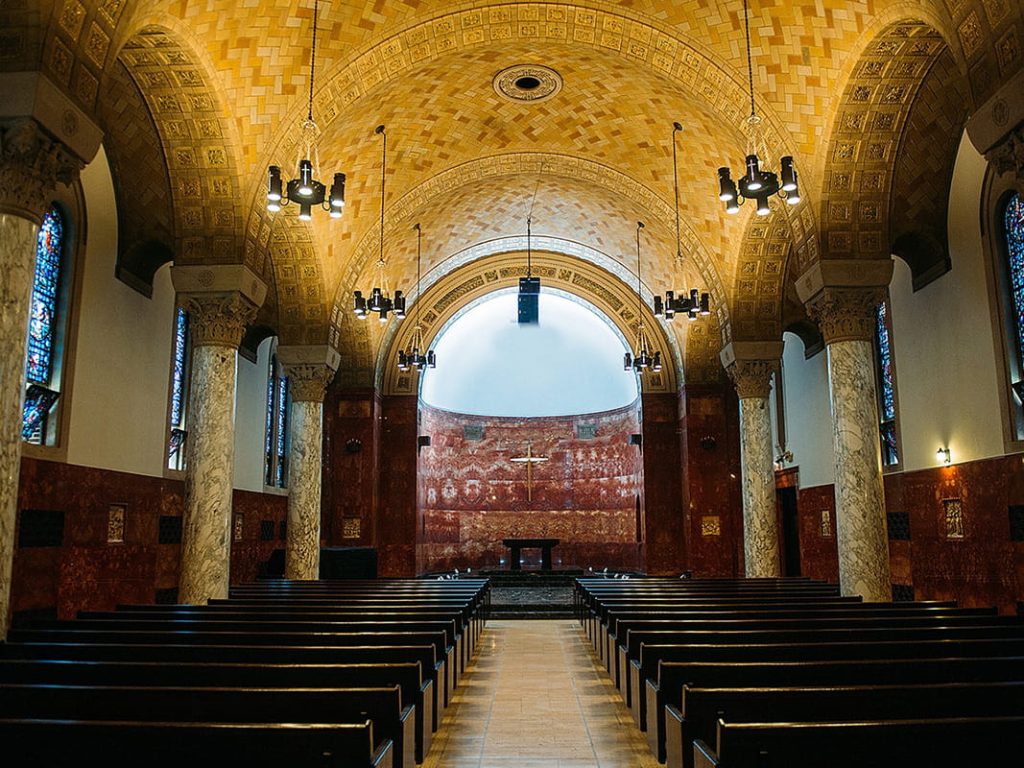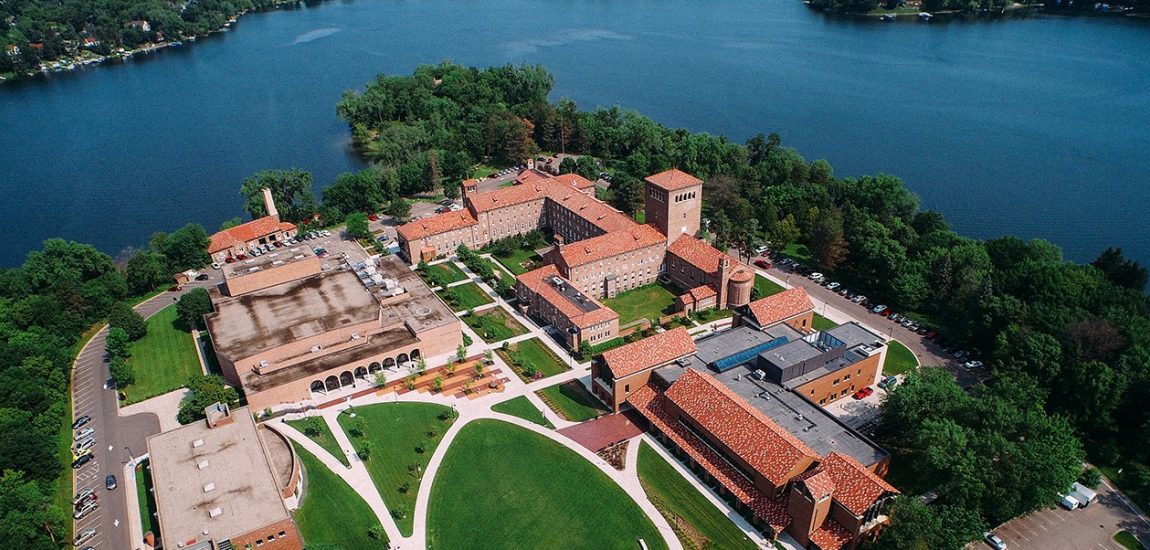Northwestern’s educational programs and media ministries are firmly founded upon definitely formulated and explicitly stated biblical doctrines as follows:
I. The Scriptures
We believe that the Scriptures of the Old and New Testaments are verbally and plenarily inspired of God, are inerrant in the original writings, and are the infallible authority in all matters of faith and conduct (II Timothy 3:16).
II. The Godhead
We believe in one God, eternally existing in three persons: Father, Son and Holy Spirit (John 1:1,2). These three are equal in every divine perfection and execute distinct but harmonious offices in the work of creation and redemption (John 15:2).
III. The Father
We believe in God the Father, Creator of heaven and earth, perfect in holiness, infinite in wisdom, measureless in power (Gen. 1:1, Ex. 15:11, Job 12:13, Matt. 19:26). We rejoice that He concerns Himself mercifully in the affairs of men, that He hears and answers prayer (Matt. 6:6), and that He saves from sin and death all who come to Him through Jesus Christ (John 1:12).
IV. The Son, Jesus Christ
We believe in Jesus Christ, the eternal and only begotten Son of God, conceived by the Holy Spirit, born of the virgin Mary, sinless in His life, making atonement for the sin of the world by His substitutionary death on the cross. We believe in His bodily resurrection, His ascension into heaven, His present high priestly intercession for His people (Heb. 9:24), and His personal, visible, imminent (Heb. 9:28), and bodily return to this earth according to His promise.
V. The Holy Spirit
We believe in the person of the Holy Spirit who comes forth from God to draw the world to Himself, and to regenerate, sanctify, and comfort those who believe in Jesus Christ. The Holy Spirit transforms the believer, gives gifts to empower the body of Christ, and produces fruit in those who live by the Spirit.
VI. Salvation
We believe that humans are created in the image of God (Gen. 1:26), that sin entered in Adam, and that all people by nature and by choice are sinners having incurred not only physical death but also that spiritual death which is separation from God (Rom. 3:23). We also believe that “God so loved the world that He gave His only begotten Son that whosoever believeth in Him should not perish but have everlasting life.” Therefore, those who by faith, apart from human merit, works, or ceremonies, accept Christ as Lord and Savior are justified on the grounds of His shed blood and become children of God. We believe in the bodily resurrection of the just and the unjust (I Cor. 15:22, Acts 17:31). The saved will rejoice forever in God’s presence, and the lost will be forever separated from God in everlasting conscious punishment. We believe that every human being is responsible to God alone in all matters of faith (Jude 24).
VII. The Church
We believe in the Church – a living, spiritual body of which Christ is the head and of which all regenerated people are members. We believe that a visible church is a company of believers in Jesus Christ, buried with Him in baptism and associated for worship, work, and fellowship (Eph. 1:22, 23). We believe that to these visible churches were committed for observance “till He come” the ordinances of baptism (Matt. 3:13-15) and the Lord’s Supper (I Cor. 11:25-26); and that God has laid upon these churches the task of persuading a lost world to accept Jesus Christ as Savior and to enthrone Him as Lord and Master. We believe that human betterment and social improvement are essential products of the Gospel. We believe that Church and State must be kept separate as having different functions, each fulfilling its duties free from the dictation or patronage of the other.
VIII. The Responsibility
We believe that we are under divine obligation to contend earnestly for the faith once delivered unto the saints by proclaiming to a lost world the acceptance of Jesus Christ as Savior and the enthroning of Him as Lord and Master (Jude 3, Acts 16:30, Col. 3:1-3).
Scripture References (NIV)
I. The Scriptures
2 Timothy 3:16 — “All Scripture is God-breathed, and is useful for teaching, rebuking, correcting and training in righteousness.”
II. The Godhead
John 1:1-2 — “In the beginning was the Word, and the Word was with God, and the Word was God. He was with God in the beginning.”
John 15:2 — “He cuts off every branch in me that bears no fruit, while every branch that does bear fruit he trims clean so that it will be even more fruitful.”
III. The Father
Matthew 19:26 — “Jesus looked at them and said, ‘With man this is impossible, but with God all things are possible.'”
Matthew 6:6 — “When you pray, go into your room, close the door and pray to your Father, who is unseen. Then your Father, who sees what is done in secret, will reward you.”
John 1:12 — “Yet to all who received him, to those who believed in his name, he gave the right to become children of God.”
IV. The Son, Jesus Christ
Hebrews 9:24 — “For Christ did not enter a man-made sanctuary that was only a copy of the true one; he entered heaven itself, now to appear for us in God’s presence.”
Hebrews 9:28 — “So Christ was sacrificed once to take away the sins of many people; and he will appear a second time, not to bear sin, but to bring salvation to those who are waiting for him.”
V. The Holy Spirit
John 16:7-8 — “But I tell you the truth: It is for your good that I am going away. Unless I go away, the Counselor will not come to you; but if I go, I will send him to you. When he comes, he will convict the world of guilt in regard to sin and righteousness and judgment.”
VI. The Salvation of Man
Genesis 1:26 — “Then God said, ‘Let us make man in our image, in our likeness, and let them rule over the fish of the sea and the birds of the air, and over the livestock, over all the earth, and over all the creatures that move along the ground.'”
VII. The Church
Ephesians 1:22-23 — “And God placed all things under his feet and appointed him to be head over everything for the church, which is his body, the fullness of him who fills everything in every way.”
Matthew 3:13-15 — “Then Jesus came from Galilee to the Jordan to be baptized by John. But John tried to deter him, saying, “I need to be baptized by you, and do you come to me?’ Jesus replied, ‘Let it be so now; it is proper for us to do this to fulfill all righteousness.’ Then John consented.”
1 Corinthians 10:23-26 — “‘Everything is permissible’—but not everything is beneficial. ‘Everything is permissible’—but not everything is constructive. Nobody should seek his own good, but the good of others. Eat anything sold in the meat market without raising questions of conscience, for, ‘The earth is the Lord’s and everything in it.'”
VIII. The Responsibility
Jude 3 — “Dear friends, although I was very eager to write to you about the salvation we share, I felt I had to write and urge you to contend for the faith that was once for all entrusted to the saints.”
Acts 16:30 — “He then brought them out and asked, “Men, what must I do to be saved?'”
Colossians 3:1-3 — “Since, then, you have been raised with Christ, set your hearts on things above, where Christ is seated at the right hand of God. Set your minds on things above, not on earthly things. For you died, and your life is now hidden with Christ in God.”





